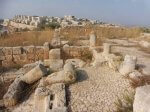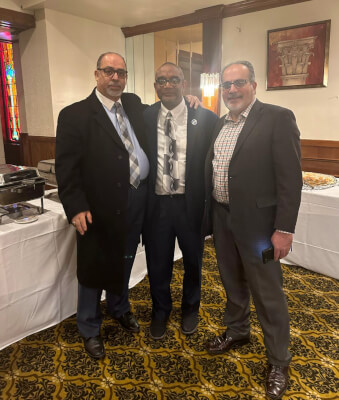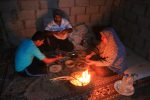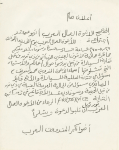The Israeli-Palestinian Conflict: Is the Neither-Peace-nor-Security Assumption Dominating Again?
By Abdennour Toumi
The reputed Israeli-Palestinian peace process is an effort that has yielded anything but progress. There have been no successes for recent U.S. presidents who have tried to bring Israeli and Palestinian leaders together to find a way to break through to peace.
In 2010, President Barack Obama’s team, despite the stubbornness of the Israeli leadership, hosted the two belligerent leaders in Wash-ington to boost the so-called peace process. The direct meeting was met in the West Bank and Gaza, as well as in Israel, by demonstra-tions against the talks, a situation that left U.S. officials cooling off the atmosphere, letting the teams negotiate directly under their super-vising eye.
Is there anything new to come from the forthcoming talks? Because the agenda of these negotiations is not going to be the same as the previous ones under Presidents Clinton and Obama, to the parties they would appear like those of President George W. Bush or, at the best, to the first President Bush.

Biased Mediator
In an electoral overture to AIPAC, a powerful Jewish lobby in the U.S, made in 2008 during his campaign for the White House, then-candidate Barack Obama explicitly recognized that Jerusalem is the undivided capital of Israel. Years later, his successor, America’s 45th president, Donald Trump, on December 6, 2017, recognized Jerusa-lem as the capital of Israel and officially moved the U.S embassy from Tel Aviv to Jerusalem.
For decades, the negotiating team of the Palestinian Authority (PA) in the West Bank and Arab “moderates” held their breath, fearing any other embarrassment from Israel, a position that could destroy for good the fragile negotiations, which would lead to the rise of new Pal-estinian negotiation team. This would raise the question about the prominent role of Palestinian resistance.
Is the neither-peace-nor-security assumption dominating again?
Leaders of Hamas and the leftist nationalist resistance forces have been questioning the legitimacy of President Mahmoud Abbas to lead any negotiations with Israeli leaders. Thus, a new military and political equation emerged from the al-Aqsa Intifada (Act II), and the prem-ises underlying any future negotiations are struggling against the re-jectionists in the Israeli camp and the skeptics among Israel’s friends in the region and Western capitals.
People in the region are no longer confused. A new dynamic of social and political change is underway. This eruption of popular anger was enhanced by the U.S invasion of Iraq in 2003, followed by the Arab Uprisings’ first (2011) and second (2019) waves, and their sociologi-cal, political and geopolitical ramifications in the MENA region.
The new imperatives of the Israeli-Palestinian conflict will not let the new Palestinian negotiation team accept Israel’s “permanent” status-quo approach to the negotiations’ parameters and agenda with the PA. Consequently, the recent battle of Gaza and general strike in the West Bank and the 1948 Occupied Territories set a new pattern in the Israeli-Palestinian conflict, which is dictated by the performance of Palestinian resistance across the Palestinian occupied lands.
Nonetheless, the current turmoil in Gaza and the al-Aqsa Intifada (Act II) have changed the conflict’s crisis-management equation. It is no longer in line with the 1967 Arab regimes’ global strategy on the Ar-ab-Israeli conflict, the 2002 Beirut Summit, Arab League resolutions towards the Arab-Israeli conflict, the peace agreements with Egypt and Jordan or the so-called Abraham Accords. Today, new actors have emerged from the Palestinian side and settled a new posture and position as a result of the wait-wait strategy and the absence of a common global strategy from Arab regimes towards the Palestinian resistance and cause.
Hence, President Abbas postponed legislative elections last April after his consultations with Arab, European, U.S. and Israeli leaders. From now on, he should first consult with Palestinians. Western media have been portraying the Palestinian state as a state without a nation or as a nation with two half-states. They have been reporting from the West Bank on how terribly the PA is governing, while missing the major point that there is no Palestinian economic foundation; the money in-jected into the West Bank is from foreign aid, sent to upset the other half-Palestinian state in Gaza and oblige Hamas to kneel down to the conditions of Israel, Arab “moderate” regimes and the West.
Al-Aqsa Intifada (Act II) Imposes New Negotiation Imperatives
After fifteen years under siege in Gaza, Palestinian resistance has grown efficient. So how are U.S. and Israeli leaders going to deal with the fact that President Abbas is irrelevant, speaking for a fraction of his political movement (PLO)? Without swift progress within the Pales-tinian house in the aftermath of the al-Aqsa Intifada (Act II), he is unlikely to legitimatize any position to sit with the Israelis without checking first with his political rival Hamas and the rest of the Pales-tinian’s resistance factions in Gaza and the West Bank.
Subsequently, if the Israelis do not give in on their policy of occupa-tion and ethnic cleansing, it undoubtedly will lead to the collapse of any talks. Domestically, Israeli Prime Minister Benjamin Netanyahu is facing tough times about his political life, after March’s general elections, an anti-Netanyahu “national coalition” camp is rising to form a government from heterogenous political fractions in order to topple him for good. Unless Prime Minister Netanyahu survives, and knows something that President Biden, President Al-Sisi and Crown Prince Sheikh Mohamed know that the rest do not. This would let the ana-lysts predict that Netanyahu might become a President de Klerk of the region. Is he brave enough to break Israel’s long-term strategy ta-boos?
Acting Premier Benjamin Netanyahu does not have enough courage to adapt his country to the social and political impacts that have fol-lowed Iraq War, the Arab Uprisings and the May battle of Gaza. Con-sequently, the persuasion of Palestinian resistance is impacting Isra-el’s domestic security, despite the dissuasion of Israel’s defense sys-tem (Iron Dome).
Whereas, acting Premier Netanyahu, unlike former Prime Minister Yitzhak Rabin who in 1993 created a narrative that Israel’s security concern was shared with the “moderate” Arab regimes and the PLO, creating the possibility that the Israeli-Arab conflict could be eased. Then they could later focus on the threat of the Shia crescent in the region, their proxies on one hand and the threat of Islamic political ideology in the region on the other.
South Africa Scenario
Apartheid policy was established in South Africa following the racist National Party’s rise to power in 1948, led by Prime Minister Daniel François Malan. The “A” word in reference to Israel’s treatment of Palestinian’s first appeared in America in 2006 in President Jimmy Carter’s book Palestine: Peace Not Apartheid.
In sum, the policy of small steps, which was dear to Henry Kissinger, is outdated. It has been 54 years since the parameters of occupation were set. The region has been radicalized further, and the situation on the ground has worsened. The prospect of a state-without-a-state, two half-states or a binational state is further isolating Israel.
The time has come for Israeli leaders to look at their repeated racist actions and atrocities towards Palestinians as war crimes; therefore the recent expansion of settlements in East Jerusalem and the battle of Gaza are not just headlines. They are, however, creating international sympathy for the Palestinian people and their noble cause among the righteous in the world, similar to what happened after the 1976 Soweto uprising against the apartheid regime in Pretoria.
(Abdennour Toumi specializes in writings and analysis involving North Africa Studies Expert at ORSAM Middle East Studies Center, Ankara, Turkey. Email him at nourhty@gmail.com.)


- The Israeli-Palestinian Conflict: Is the Neither-Peace-nor-Security As-sumption Dominating Again? - June 7, 2021
- Algeria: “I Can See Clearly Now” - August 5, 2019
- Majesty Mohammed VI and General Gaïd Salah Tear Down This Wall! - July 29, 2019
























